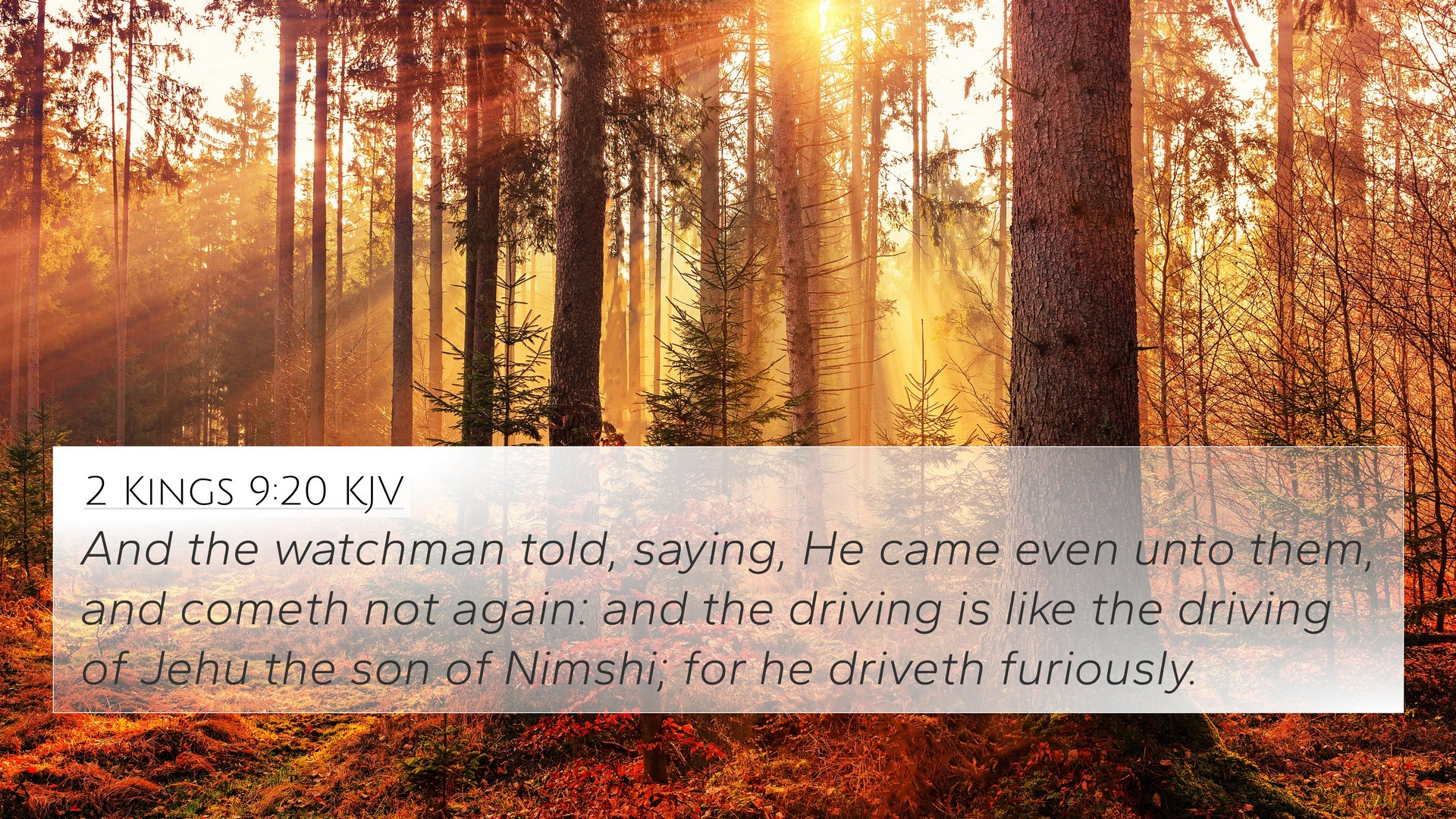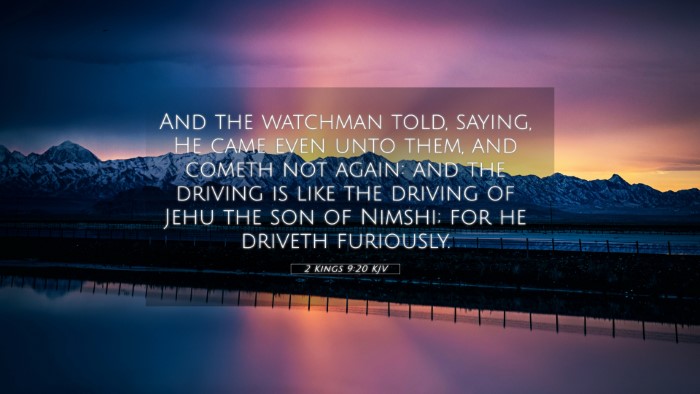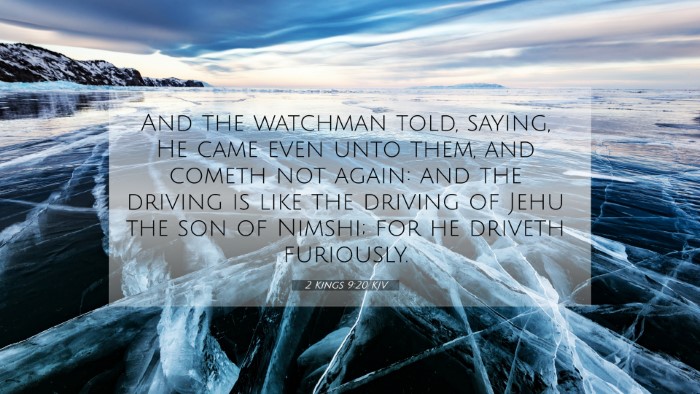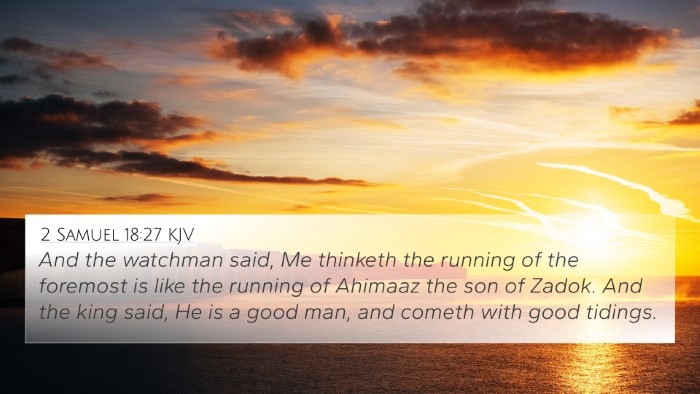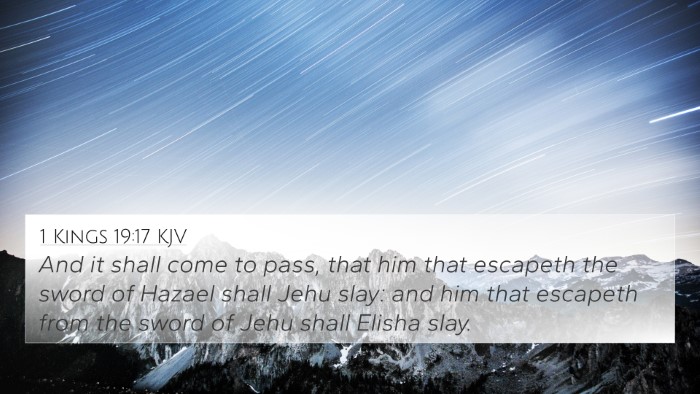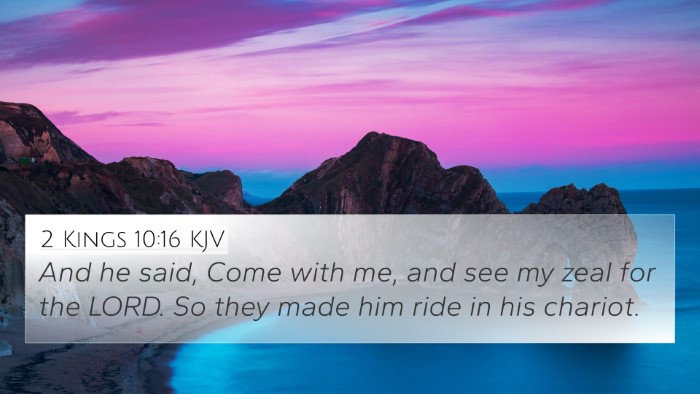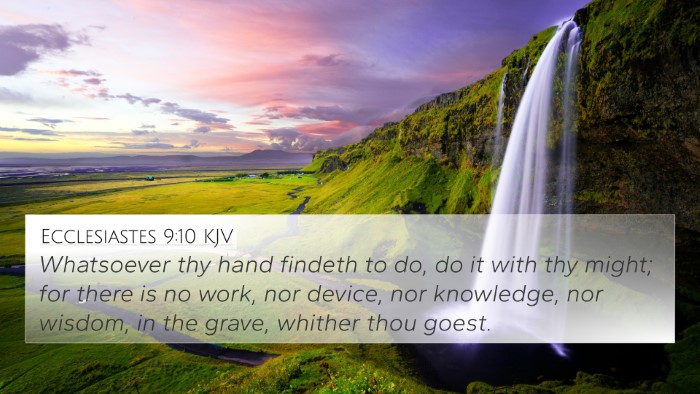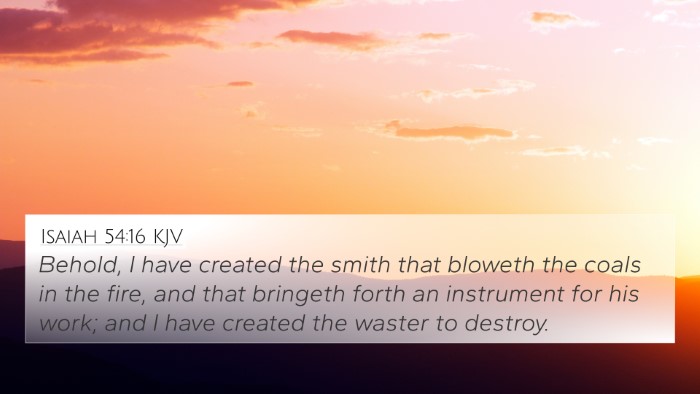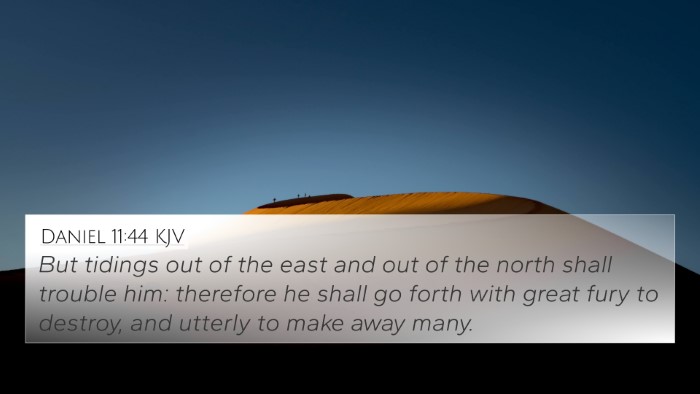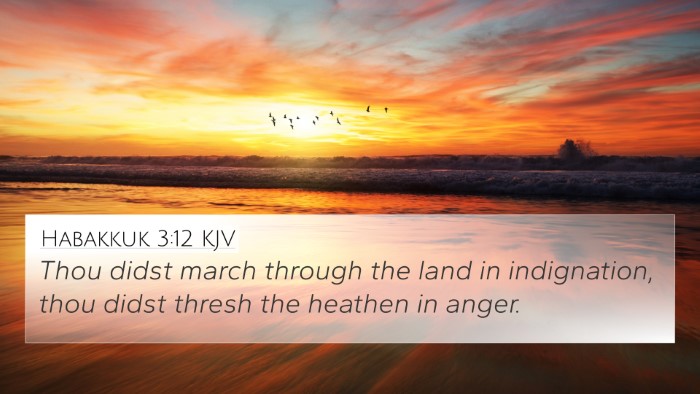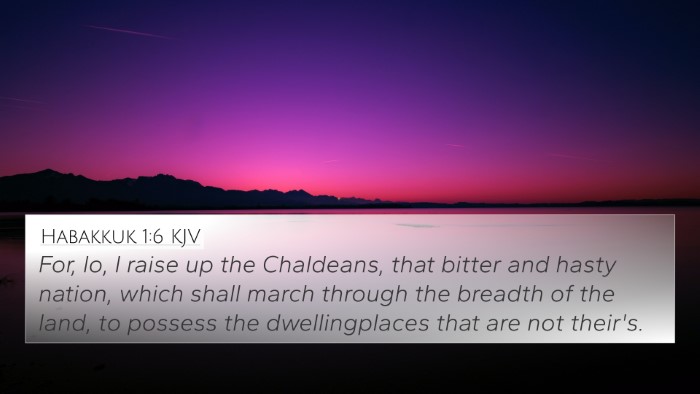Understanding 2 Kings 9:20
Verse: "And the watchman told, saying, He came even unto them, and cometh not again: and the driving is like the driving of Jehu the son of Nimshi; for he driveth furiously."
Overview
The verse highlights the arrival of Jehu, a key figure in the Biblical narrative, known for his fervent and zealous actions. The description provided by the watchman is significant not only for its literal meaning but also for its symbolic implications related to leadership, divine judgment, and fulfillment of prophecy. Understanding Jehu's character and mission is essential for grasping the larger context of this passage.
Commentary Insights
-
Matthew Henry:
Henry points out the watchman's alertness and the foreshadowing in his observations. The watchman contrasts Jehu's furious driving with others, indicating Jehu's distinctive and decisive approach to his divinely appointed mission. This driving reflects Jehu's commitment to eradicate the idolatry present in Israel.
-
Albert Barnes:
Barnes emphasizes the prophetic nature of the events surrounding Jehu. The statement of the watchman serves as both a warning and an affirmation of the prophecies concerning Jehu's rise. The mention of his driving captures not only the speed but also the intensity of Jehu’s actions which were motivated by divine instructions to execute judgment against the house of Ahab.
-
Adam Clarke:
Clarke elaborates on the nature of Jehu's driving as a metaphor for his character. Jehu embodies the fervor required in carrying out God’s commands. This verse illustrates how divine missions are often accompanied by strong, sometimes reckless energy, which invites readers to reflect on their responsiveness to God’s call.
Connections and Cross-References
To fully understand 2 Kings 9:20, it is important to explore how it connects with other Bible verses:
- 2 Kings 9:7: This verse discusses Jehu's anointing and divine mission, establishing the reason behind his fervent driving.
- 2 Kings 10:11: This follows the actions initiated by Jehu, showing the fulfillment of God’s judgment against Ahab’s family.
- 1 Kings 19:16: God's directive to anoint Jehu highlights the prophetic background leading to this moment.
- Matthew 3:12: The concept of judgment and separation is echoed in the New Testament as John speaks of Jesus’ winnowing fan.
- Luke 9:62: Emphasizes commitment and the urgency of following God's call, akin to Jehu’s driving purpose.
- Hosea 1:4: The context of judgment against Israel sets the stage for understanding why Jehu's actions were necessary.
- Revelation 19:11: Presents the imagery of Christ as a rider on a white horse, connecting themes of divine fury and judgment with those seen in Jehu's fervor.
- John 2:13-17: Jesus’ zeal in cleansing the temple reflects a righteous anger similar to that of Jehu’s mission.
- Isaiah 9:19: Discusses the consequences of rebellion against God that Jehu is ultimately addressing through his actions.
- Joshua 1:7-8: The theme of strong and courageous action echoes in Jehu's decisive character as he obeys God’s command.
Thematic Connections
This verse, along with the insights from historical commentaries, illustrates profound themes within the Bible, including:
- Divine Judgment: The necessity of God’s judgment in restoring order.
- Zeal in Action: The urge to carry out God’s will with fervor and determination.
- Prophetic Fulfillment: Jehu's actions alludes to the fulfillment of earlier prophecies regarding Israel's eventual judgment.
Conclusion
2 Kings 9:20 serves not only as a descriptive account of an event but as a pivotal moment illustrating the nature of divine action and judgment through Jehu. By cross-referencing with related verses and examining the insights of significant biblical commentators, one can appreciate the depth and complexity of this scripture. This analysis highlights its main themes and underscores the importance of recognizing the strong connections between various biblical narratives, enhancing our understanding of God’s overarching plan for His people.
